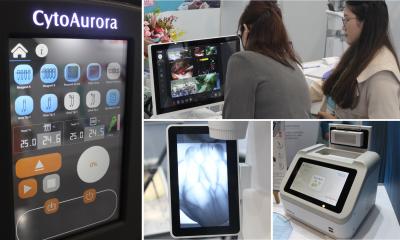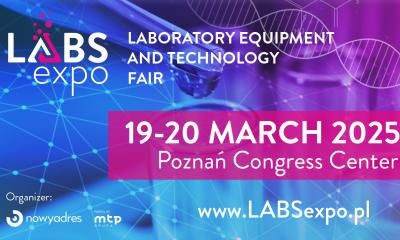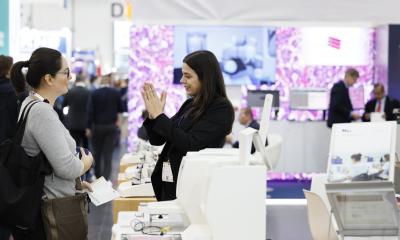Article • Don't miss:
Talks and panel discussion at the Labmed forum
An overview
Monday: Regulations and quality
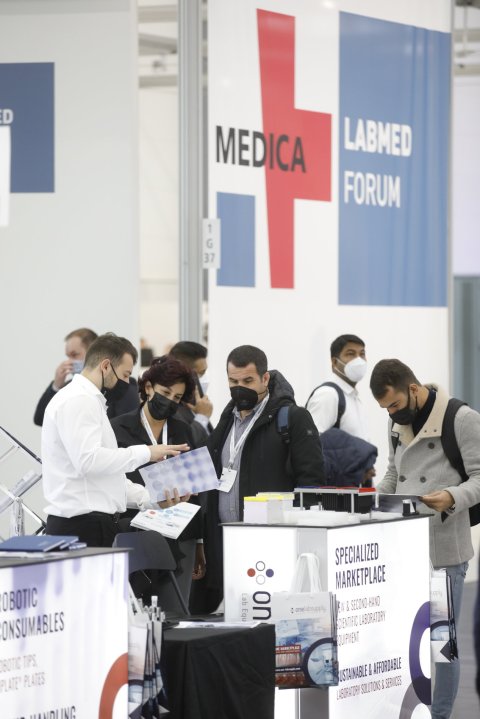
Image source: Messe Düsseldorf, Constanze Tillmann
The motto of the opening day will be ‘Regulations and quality’. This day of the forum is dedicated in particular to the European In vitro Diagnostics Medical Devices Regulation (IVDR), which aims to markedly improve the standards of quality within the area of diagnostics to increase patient safety. As of May 2022, these regulations now apply to laboratory diagnostics as well and pose enormous regulatory challenges not only to manufacturers, but also to medical laboratories using proprietary assays – for example for specialised parameters – in practical patient care. ‘A statement such as ‘We've always been doing it like this’ will be unacceptable in the future,’ says Prof Dr Astrid Petersmann, Medicine and Health Sciences at Oldenburg University.
In the same sense, this applies to quality assurance methods which have been established for many years, but the requirements of which have so far been formulated more from a perspective of technical feasibility than from a perspective of medical necessity. This is to change in the future, and Prof Dr Matthias Nauck, Greifswald University Department of Medicine, will present the first steps that have been established.
Other than that, information about the quality of the examinations carried out by medical laboratories must become more transparent and concrete for the attending doctors. This aspect will be discussed in the part of the event titled ‘Quality assurance in patient-oriented laboratory medicine’.
Tuesday: Trends in laboratory medicine
The second day of the event is dedicated to short lectures and interactive stage discussions about the newest trends in laboratory medicine.
Referred to as liquid biopsy or liquid profiling, diagnosis through nucleic acids circulating in the blood (CNAPS) has been talked about now for years. According to Prof Dr Stefan Holdenrieder, who will lead the session on "New insights in circulating nucleic acid diagnostics", this diagnostic technique is quickly taking the leap from a scientific research method to clinical practice – from ‘bench to bedside’.
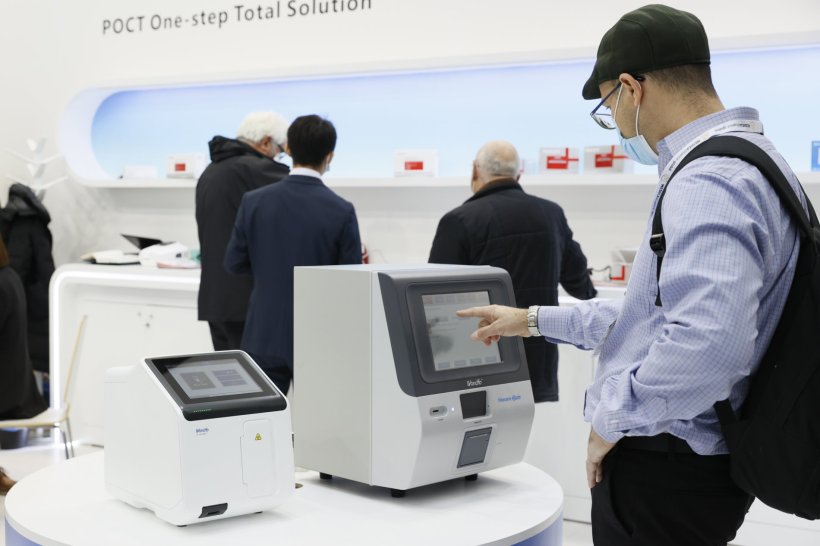
The ‘perpetual issue’ of Covid-19 will have its own session this year, titled ‘Covid-19: The challenge remains’. Current challenges include the ongoing, astounding evolution of perpetually new virus variants and the resulting necessity for adapting diagnostics, therapy and the development of vaccines accordingly.
As another challenge both for individuals and for society as a whole, long Covid syndrome is also slowly beginning to gain attention. To better understand and treat this slowly spreading ‘disease after the disease’ which affects millions of people worldwide – including those who had a mild course of acute illness – and which can cause long-lasting physical and psychological disability, a deeper understanding of the pathophysiology, new molecular diagnostic tests and specialised treatment centres for affected patients are necessary.
Wednesday: Emerging biomarkers in laboratory medicine
On November 16, recently discovered biomarkers take central stage. The morning will be dedicated to technologies the potential of which for medical diagnostics and therapy is still under evaluation. This includes new methods of sequencing genomes and detecting complex epigenomic changes.
Dr Verena Haselmann from the University Hospital Mannheim and a team of young, dedicated scientists will shine a light on the ‘rising stars’ among the new biomarkers.
Another topic is the application of these methods on single cells (single-cell omics) and the examination of blood samples by magnetic resonance imaging (MRI); a method which so far has only been routinely used for diagnostic imaging.
In the afternoon, there will be an introduction of methods which are already closer to being ready for the market, but still subject to heavy discussion. Speakers will talk about detecting genetic aberrations of the embryo in the maternal blood through noninvasive prenatal testing (NIPT) or immune response assays on the cellular level, which are of importance right now when assessing the status of immunity during the Covid-19 pandemic.
Image source: Messe Düsseldorf, Constanze Tillmann
Thursday: Innovative developments in the life sciences
The closing day will showcase innovative developments within the life sciences. Dr Peter Quick, head of the Life Science Research work group at VDGH e.V., the German association of the diagnostics industry, will bring researchers and developers on stage whose work on RNA technologies, highly important for the development of vaccines, has gained widespread recognition.
Dr Christian Dohmen, Ethris GmbH, Senior Director Formulation & Aerosol Research, will present the ‘mRNA Therapeutics for Lung Diseases’ project, one of the RNA technologies discussed. The project advocates for a novel class of mRNA products to be used as therapeutics in the treatment of respiratory and infectious diseases. The Ethris technology platform will pave the way for a protein replacement therapy for rare lung diseases and for antiviral therapies.
Gene therapy, genome editing and diagnostics – where does the journey lead? Toni Cathomen, professor for cell and gene therapy at Freiburg University and director of the Institute for Transfusion Medicine and Gene Therapy at the University Medical Center, will also look at the future. Programmable nucleases like CRISPR-Cas have hailed a new era within personalised medicine. Prof Cathomen will explain the principles of gene therapy and genome editing, present examples of successfully applied gene therapies for diseases of the blood and the immune system, and discuss new technologies for editing the genome, which have noticeably enlarged the application spectrum of gene therapy. He will end his presentation with a closer look at diagnostic assays used to assess, and where appropriate ameliorate, the risks of genotoxicity. The audience is invited to join the discussion about the future of this field.
14.11.2022



